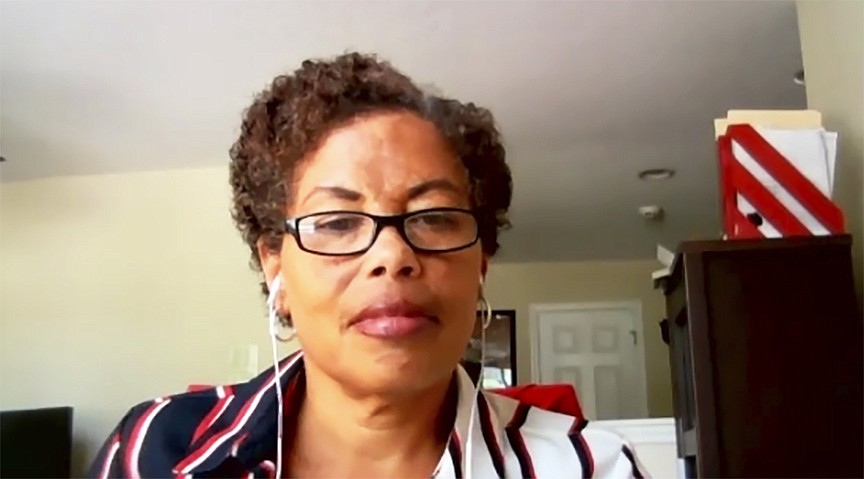
The topic when the Jacksonville Women Lawyers Association met remotely Oct. 15 was the state of equity in the legal profession and how to advocate for equal opportunities for women and minorities.
Keynote presenter Tammy Hodo is president and lead consultant at All Things Diverse.
Hodo has a doctorate in urban studies and specializes in race, class, gender and ethnicity issues.
“I thought she’d be the perfect person to put in perspective what the country has been through,” said JWLA President Cyndy Trimmer.
Hodo presented statistics related to disparities affecting gender and ethnic groups in the legal profession, including how different groups are financially compensated and rewarded in their careers.
While 35% of attorneys are women, they represent 45% of entry-level associates but only 20% of nonequity partners and 18% of equity partners.
One factor that could contribute to fewer female partners is that women lawyers tend to leave the field sooner than their male counterparts.
Reasons cited by women lawyers for leaving their job is led by caretaking commitments (58%), level of stress (54%) and emphasis on marketing or billable hours (50%).
African Americans represent 13% of the population and Hispanics 18%, but each represents just 5% of the attorney population. Asians represent 5.6% of the population, but only 2% of the Bar, Hodo said.
Among associate attorneys, women earn on average 94% of what a man earns. That drops to 89% of what a male nonequity partner earns and further to 86% of what male equity partners earn, Hodo said.
The inequity in compensation could be because many law firms operate as meritocracies with, on average, predominantly white males (about 86%) making a law firm’s decisions about advancement and compensation.
Hodo said that could explain why women lawyers are drawn to jobs in federal and state government, where evaluation of staff attorneys is more objective.
“In government, advancement is based on years of service instead of billable hours,” she said.
One of the best ways a woman lawyer can overcome disparity in her career is to find a mentor – or better yet, a sponsor.
Hodo advised seeking a sponsor who is a senior level staff member who’s willing to share active network connections and become personally invested in the upward movement of a less experienced attorney.
Having more equitable opportunities for success in the legal profession for women and minorities contributes to a better workplace, Hodo said.
“Sociologists find the more diverse a workplace is, there are less meetings and faster decisions,” she said.
Hodo also advised women and minority lawyers to speak up for themselves and others who may experience disparity.
“It’s important that we do this. We’re all sisters,” she said.